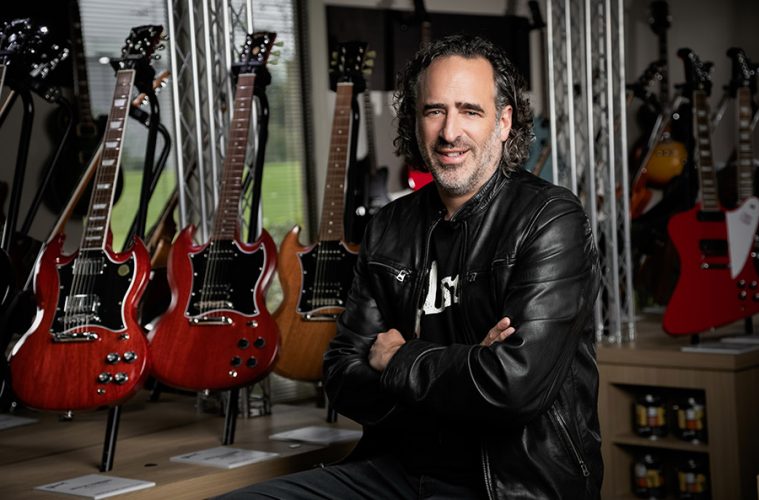If one were to ask what the biggest change at Summer NAMM this year was, the answer would be simple: Gibson Brands Inc.’s presence. As most are aware, Gibson emerged from bankruptcy with a new leader, James “JC” Curleigh, who has made a plethora of changes since, utilizing his vast experience of leadership in other industries. Curleigh, clad in a white denim jacket and Levi’s jeans, presented a lengthy speech at the NAMM Young Professionals event on July 19 at Summer NAMM in Nashville to discuss his career, why he joined Gibson and what MI retailers can expect from the guitar manufacturer in the future. Here’s a detailed look at what Curleigh, a citizen of three countries — Canada, the United States and the United Kingdom — professed during his 50-minute speech, which included many one-liners and plenty of fascinating information.
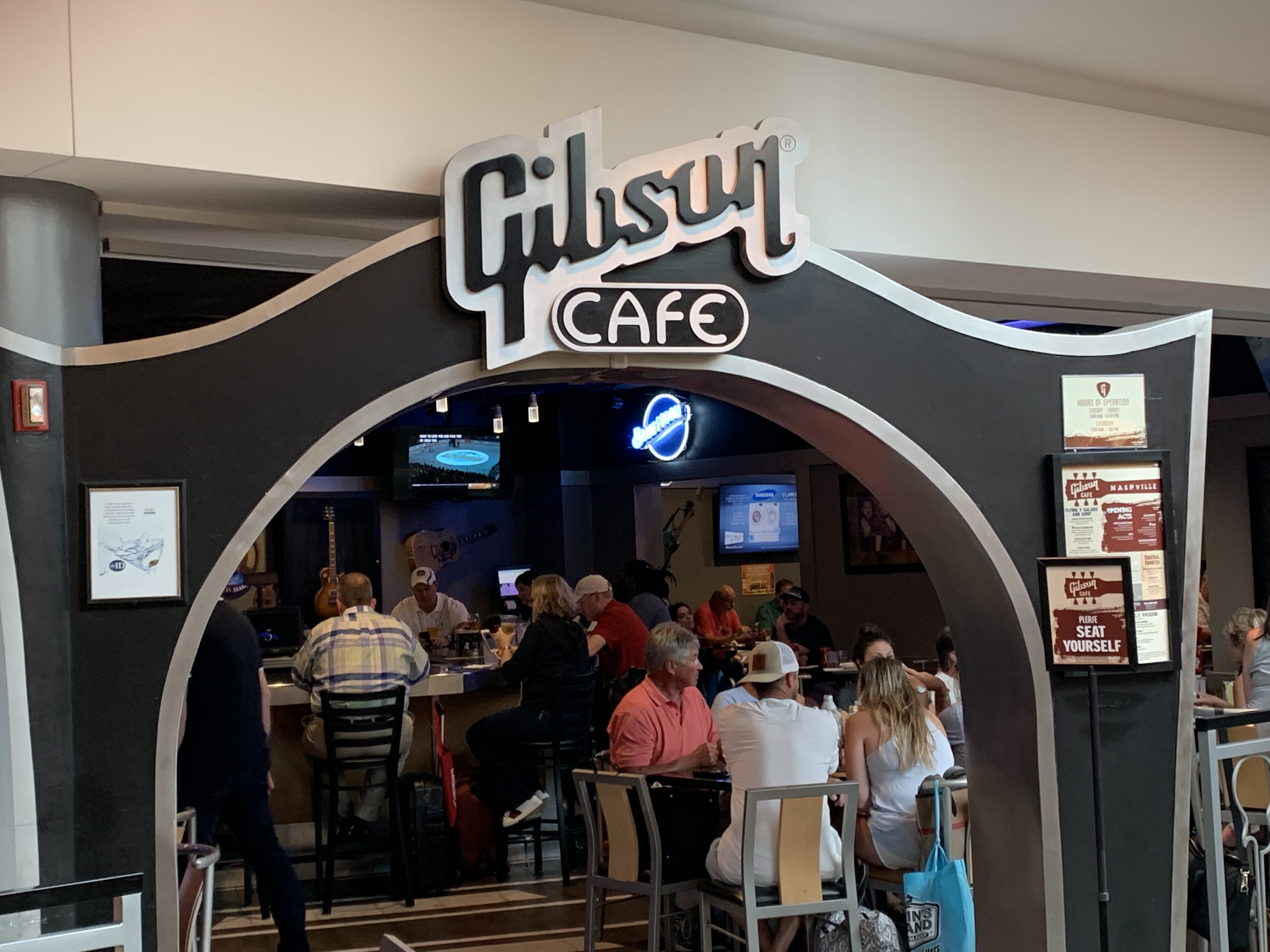
- “Life is about momentum. Momentum is a force. Have you ever thought about physics in what you do? An object at rest tends to stay at rest until you apply force. Nothing happens until you do something. Force equals mass times acceleration. And third is, for every action, there is an equal and opposite reaction. The reaction can stop your momentum or cause you to pivot to other momentum… Momentum is often something to think about [in your business].”
- “Often, people are asked, ‘What’s your story?’ Some will just say, ‘Well, I am just hanging out.’ Others will be asked the same question, and they draw you in. Those individuals have captured a lot of what they’ve done over time and can tell a story. Knowing your personal story or story as a business is important. I know people who have struggled to articulate their story. If they struggle, perhaps others do, and perhaps the business is not where it should be.”
- “I love chocolate. When I moved to London, my dad, a general, gave me a book. Have you ever received a book from your parents and not read it? How did it end? Not good. The book talked about the top 100 companies to work for in Europe in 1990. He said, ‘There it is, your future.’ I said, ‘Dad, you don’t buy a book, call a number and get a job.’ The No. 1 company to work for was M&M Mars. I called the number. … I went in to see them. I joined M&M Mars for five wonderful years. I was there for brand extensions. I led the Olympic program in Albertville, [France]. I spent $30 million to throw parties in Albertville and Barcelona to relaunch Snickers around the world. In 1990, Snickers was called five different things throughout the world. I said, ‘Why is that?’ The Brits told me snickers rhymes with knickers, and you can’t call it that. But the Mars family liked the idea and we relaunched with one name less than a year later. The moral of the story: Have a big vision. Take something you don’t imagine can happen and do it.”
- “At the Olympics, we often had the same party. I had this vision that we would watch men’s and women’s downhill skiing and the next day, who wouldn’t want to ski there [down the same slopes]? Salomon was launching new skis there. I met with them and said, “We would like our guests to get some skis and take them on the men’s downhill.’ We got all these skis from Salomon. Professional skiers took our guests down the men’s and women’s downhill [slopes]. It was an amazing experience. I had great contacts at Salomon. I went back to Mars in London. Guess who called me a month later? Salomon. They asked me if I would consider coming there. I loved M&Ms, but man, the mountains were calling. I met the owner, and he said, ‘JC, should we just ski or should we do something more?’ It’s a good question for a leader to ask. I remember in his office there was a whiteboard. I said, ‘Maybe it’s not a question of should we ski or do something more?’ The question is, ‘Where will the mountain be in 10 years?’ I drew a picture of the mountain and people will be going snowboarding, and in the backcountry, there are families, Olympics and racing. There are all sorts of things going on. There’s a health movement that, when the snow goes away, people hike up and down the mountain and go on trails. So, I said, ‘It’s not looking at share of skiing. It’s looking at share of the mountain.’ A couple of months later, my drawing of the mountain was still up on the whiteboard and he said, ‘That is now in permanent ink.’ One of my first jobs was erasing the whiteboard. … We became a mountain sports brand that tripled its magnitude and vision. It was an amazing 12-year journey at Salomon, where I became president and CEO of Salomon North America, which allowed me to really understand how to go into a market and create new things.”
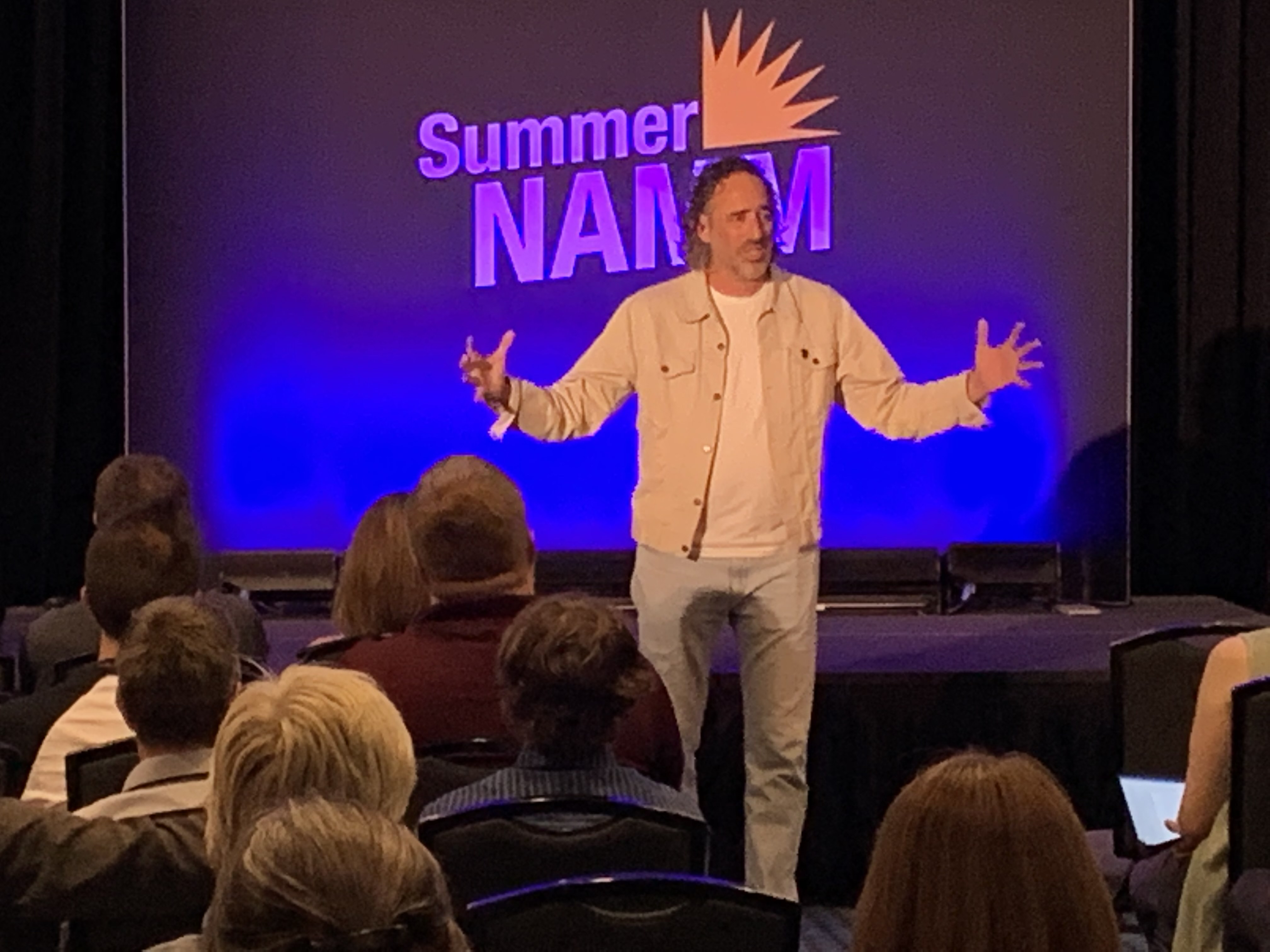
- Following Salomon, Curleigh received a call from a man who said he invented a shoe that can protect your toes and let them breathe. “I thought it was a big idea. This guy invented Keen shoes, a toe-protected sandal. You either know them, love them and wear them, or you don’t. It’s polarizing. I was the president of Keen footwear for five or six years. We had explosive growth. We built a brand off a culture that didn’t exist. We could do things that young companies can do, because we had no rules and no policies. I remember a conversation we had there where we said, ‘We can’t call it a toe-protected shoe. What is it? It’s a hybrid shoe that protects and breathes. That sounds fancy.’ We built this brand off of fun and performance. It was an amazing experience.”
- “I was at Keen, and all of sudden, I got a call from Levi’s. I had been wearing Levi’s my whole life, ever since I was a kid. I went to talk to them in 2012. I told them, ‘I have been wearing Levi’s all my life. My kids have no idea who you are. My wife left you years ago. My parents don’t wear you anymore. You need to act like the future matters more than the past.’ The next day, they asked me if I wanted to figure out how to do so. Jeans are synonymous with so many things. I knew they needed to have a vision of not where it was, but where it could go. They told me they were the worldwide leader in jeans [sales], so everything was OK. But sales were declining. Rule No. 1: If you ever find yourself No. 1 [in a category] and you are not growing, you should declare crisis immediately. We took a look at the entire closet and saw jeans had about 5 percent or 6 percent of the purchasing power of the closet. So, even if we won, we would only be the leader of 5 percent of the closet. So, I focused on share of closet. What does every pair of Levi’s have? Belt loops. So, I said, ‘Let’s [make] belts. How about jackets?’ Levi’s has become an amazing lifestyle brand once again. Levi’s had a great IPO [initial public offering] recently.”
- “Last year, I got to the point that things at Levi’s were going great. I read the news and I am a musician. I saw news about Gibson that started with a B: bankruptcy. That is not a good word, especially for a brand that is iconic. I thought, How could that happen? I got in touch with a few folks. Levi’s was going great, and I knew music was something I was passionate about. It was a challenge I wanted to take on. The brand is iconic and in a place called Nashville, which is awesome.”
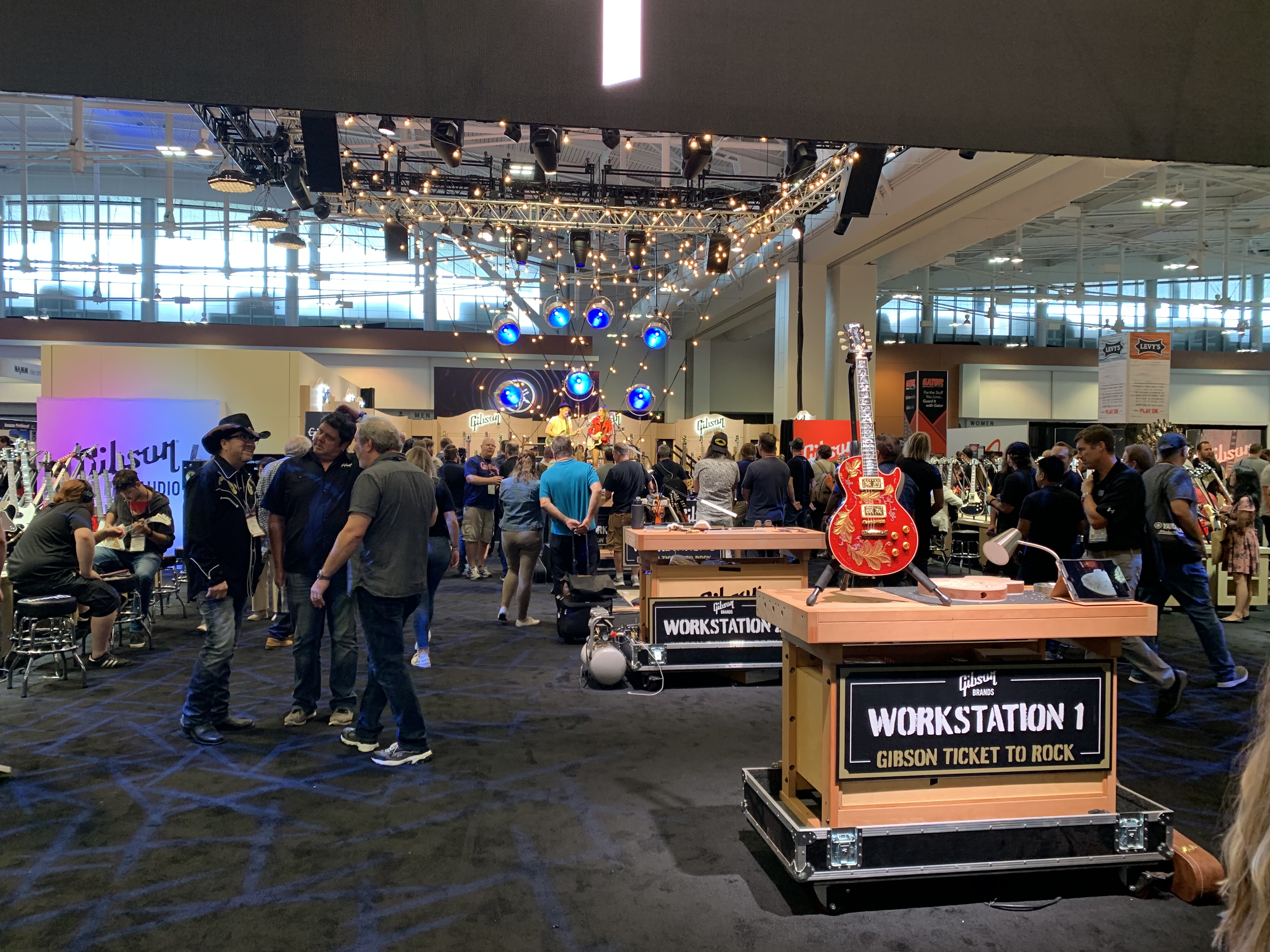
- “SOS is a very real distress signal that means the ship is sinking. That was declared on May 1, 2018 at Gibson. My rally cry on day one was to save the sound at Gibson. Gibson is synonymous with shaping sound for 125 years. Mandolins, banjos, clearly acoustic guitars and the golden era of Chuck Berry in the 1950s, who created music nobody had ever heard of. I spoke to Chuck Berry’s estate, and they said, ‘Without Gibson, Chuck might not have been Chuck.’ Certainly, without Chuck, Gibson might not be Gibson. It was during this golden era that the Les Paul was created. … The quest for Gibson going forward kind of seems simple. How do we set the conditions for the next 125 years to create, shape, and inspire and share that sound moving forward? What share of sound can Gibson contribute in the future? Has anyone ever thought of that concept? Who owns the share of sound? You can go to a concert and see what guitars are being played. You can see what instruments music is recorded on. You can go to a guitar shop and see how many guitars are from how many different brands. I started day one by shifting from let’s save our sound to let’s go after share of sound.”
- “I started thinking like a startup. What happens with big, bold companies with a heritage is, they tend to get a culture that is a little bit lethargic. People were telling me, ‘JC, this how we’ve always done it.’ I said, ‘How did that work out for us? Bankruptcy. Maybe we should do it differently.’ I am not trying to be facetious. You need to understand what has worked. And if it doesn’t work, you can’t incrementally shift it. You need to smash it. Guess who does that best? Startup cultures. Why? They don’t have a heritage, something iconic, a legacy that people love and covet. Startups have to learn every day. I said, ‘Let’s become the 125-year-old startup. We leverage our iconic power. Strip away Gibson. Strip away music. We need to become a modern-day manufacturer that can then say we are in this awesome industry of music. We have invested more in our factories in the past eight months than we have in the past eight years. We are letting our workforce come up with ideas. Craftsmen are coming up with ideas.”
- “I read up a lot about Gibson before I came here and saw the quality is not what it used to be. So, we took the lead on quality. My No. 1 obsession is quality of guitars. If you do everything else well, but you haven’t fixed what you do best, it doesn’t matter. I have never been more proud of a team. The quality coming out of factories is the highest level of quality we have created in many, many, many years. Are we perfect? No. Are we making amazing progress? Yes. Part of the challenge of Gibson in the past is, we took way too much on. We spent a lot of money to go way beyond the core. That debt load started affecting the core. When that happens, you stop investing in factories. You stop investing in marketing. We said we needed to go back and rebuild our core. Protect the core. Expand for more.”
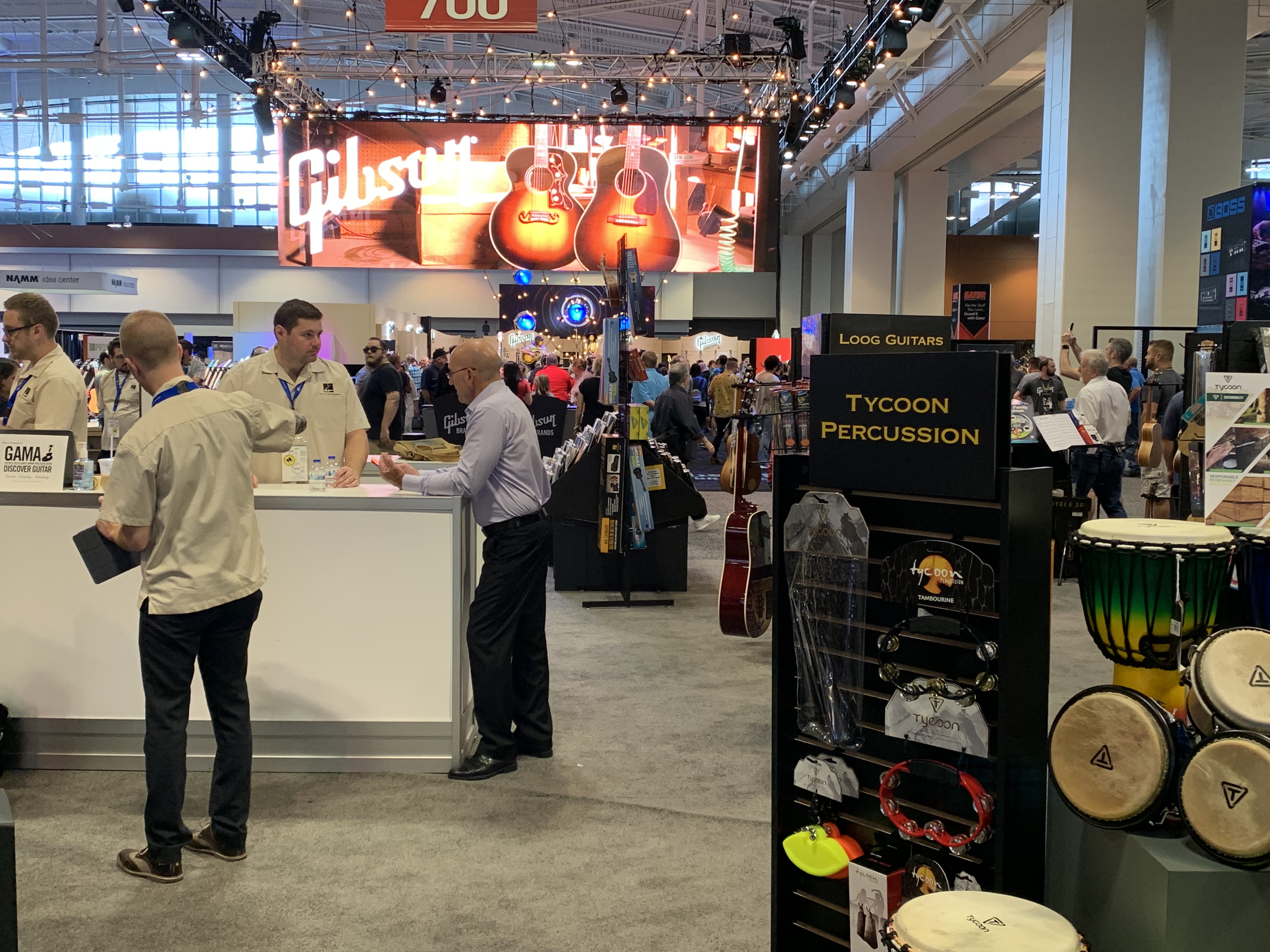
- “Life is getting complicated. But it doesn’t mean simplicity is always the answer. It doesn’t mean sophistication is always the answer. Think outside the industry about brands you touch every day that become part of your life. There’s this place I’ve heard of. There are 10,000 of them in the world. It’s near where you live. It’s near where you work. When you go in, there are 16,800 permutations of choice. They teach you a new language: venti. They know your name. And you get that custom solution for $5. That’s simplicity, but very sophisticated. You don’t think of Starbucks that way, but it is. Simplistic in the front and sophisticated in the back may be the new business model.” “Have you ever heard the phrase, “The consumer is the boss?” If your boss tells you that, tell them JC says [they are wrong]. The consumer can’t fire you. Has anyone ever seen a consumer fire someone? But what the consumer has is something way more powerful: choice.”
- “Nothing matters more than more people playing music in our industry. … The guitar has mattered a lot during the past 100 years. How do we make it matter more in the future? That’s a daunting task. But we have to think like that.”
- “With ‘A Star Is Born,’ ‘Bohemian Rhapsody,’ ‘Rocket Man’ and now ‘Yesterday,’ we are putting music beyond music stores and onto screens. We are putting it into the zeitgeist of culture. It’s unbelievable. The week I joined Gibson, I saw ‘A Star Is Born,’ and apart from the ending, I thought, Who wouldn’t want to be that guy? [In ‘A Star Is Born,’] both Bradley Cooper and Lady Gaga had Gibson guitars, the J45 and 335. But there is a moral for Gibson. Who here [in the audience] saw the ‘A Star Is Born’ J45 and 335 as the ultimate holiday item for him and her? We missed a huge opportunity. That would have been the ultimate gift. I didn’t see anyone in the industry do anything [related] to the movie. That’s an indictment on us. Hollywood is making us awesome. We should have done more with this. Leverage it. Don’t just let it pass. Take that moment and do something with it.”
- Steve Jobs said, ‘It is all about giving something people didn’t know they wanted, and when they got it, they couldn’t live without it.’”
- “The industry has accepted me with open arms. … As The Beatles and Joe Cocker said, ‘We get by with a little help from our friends.’”


